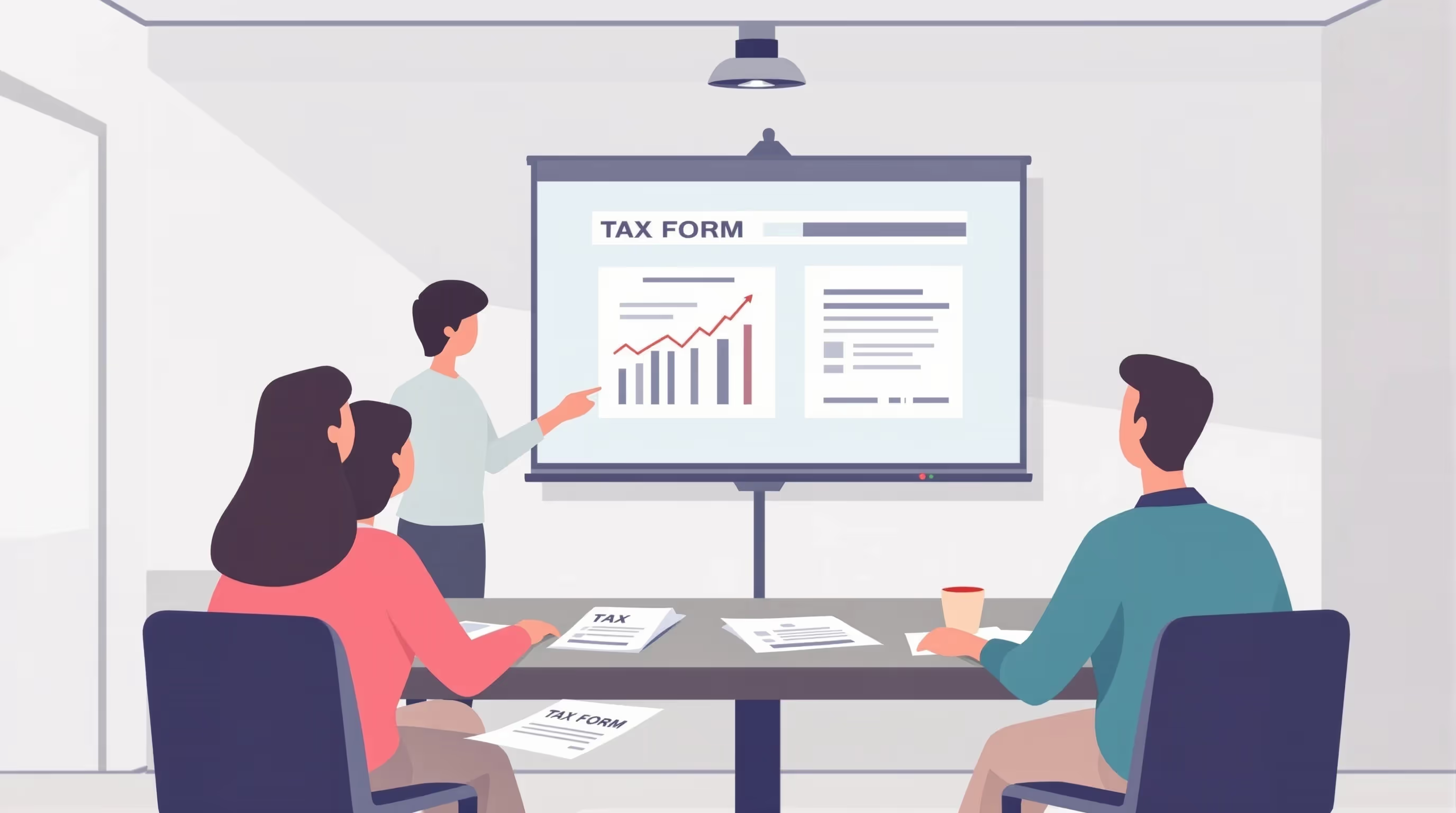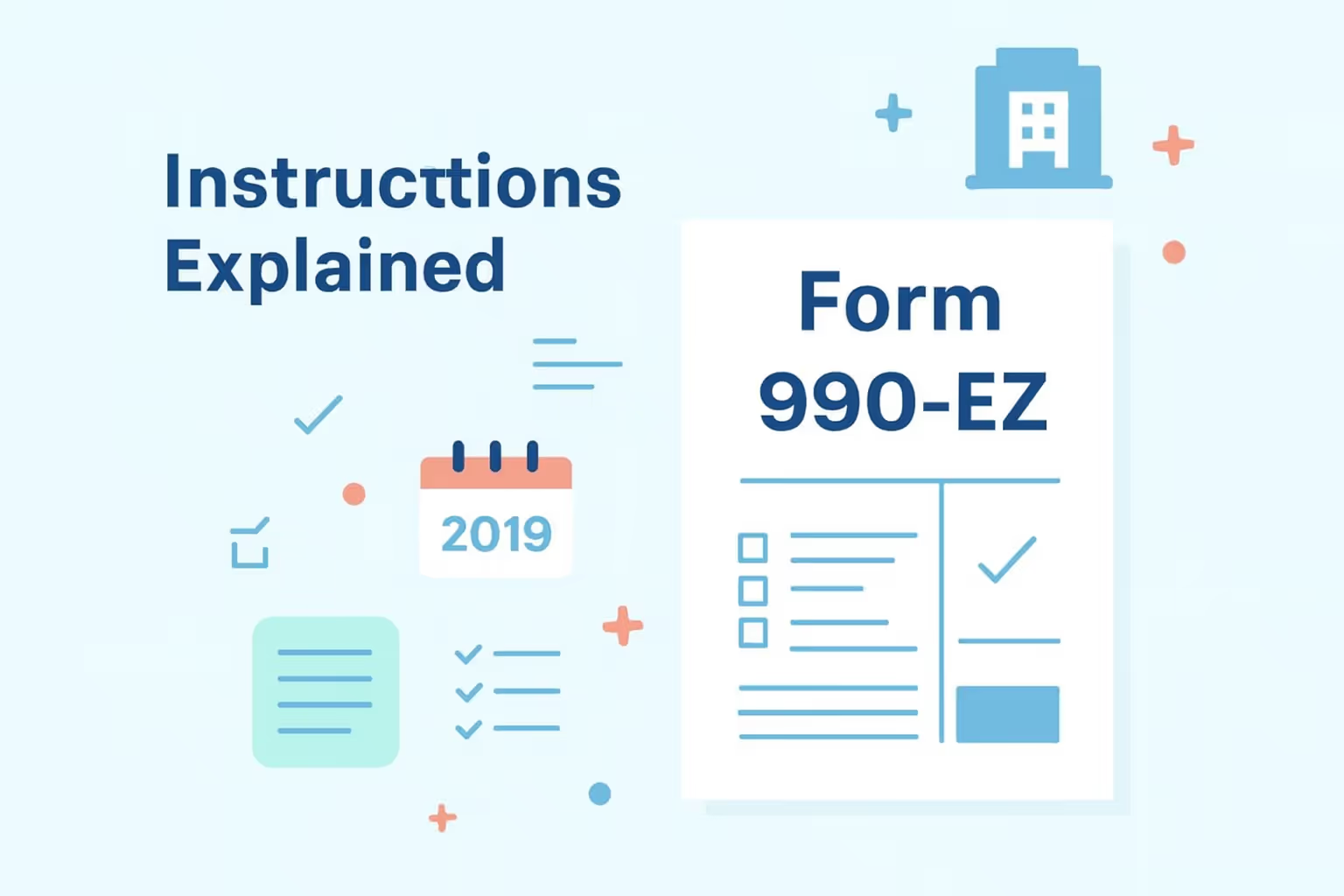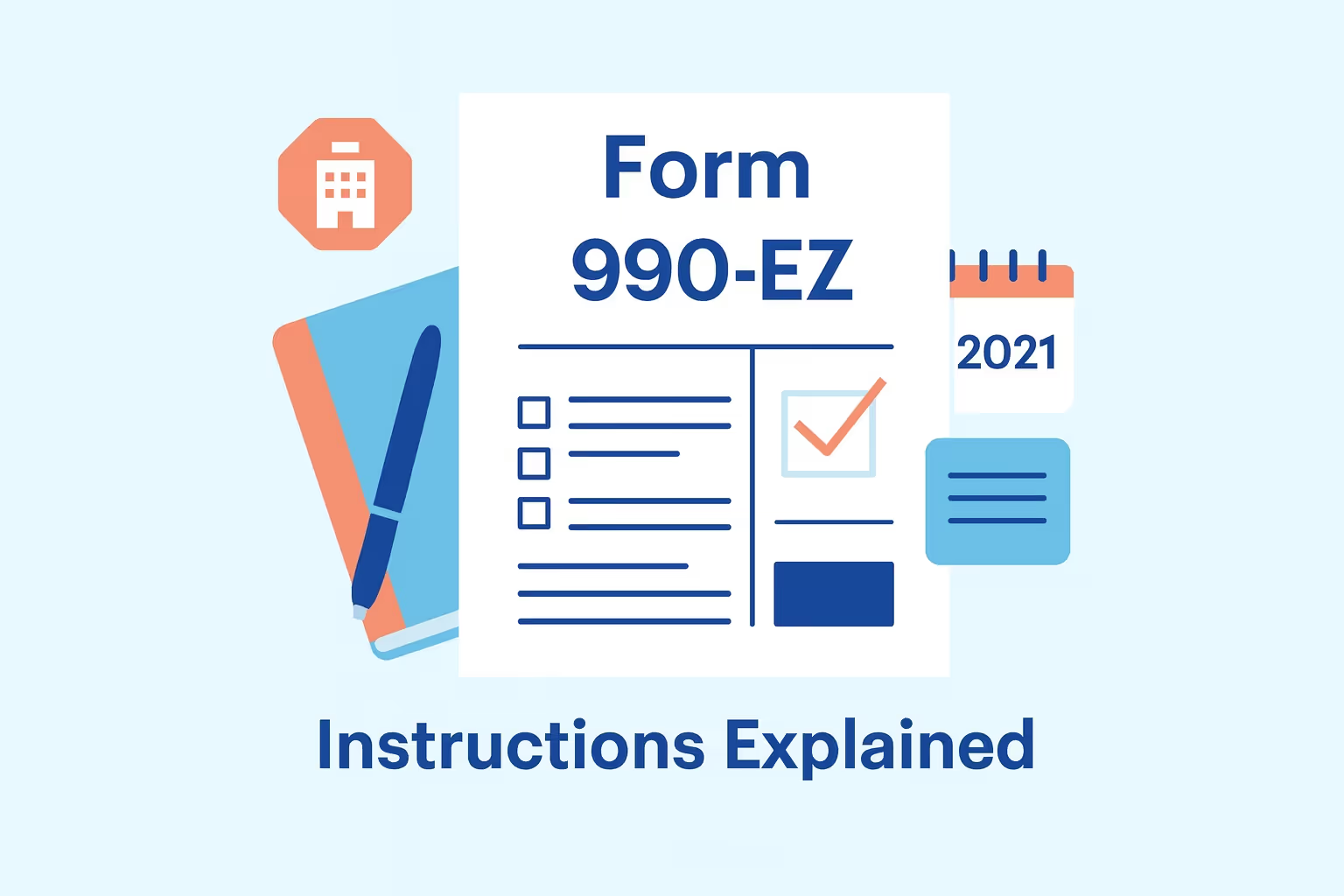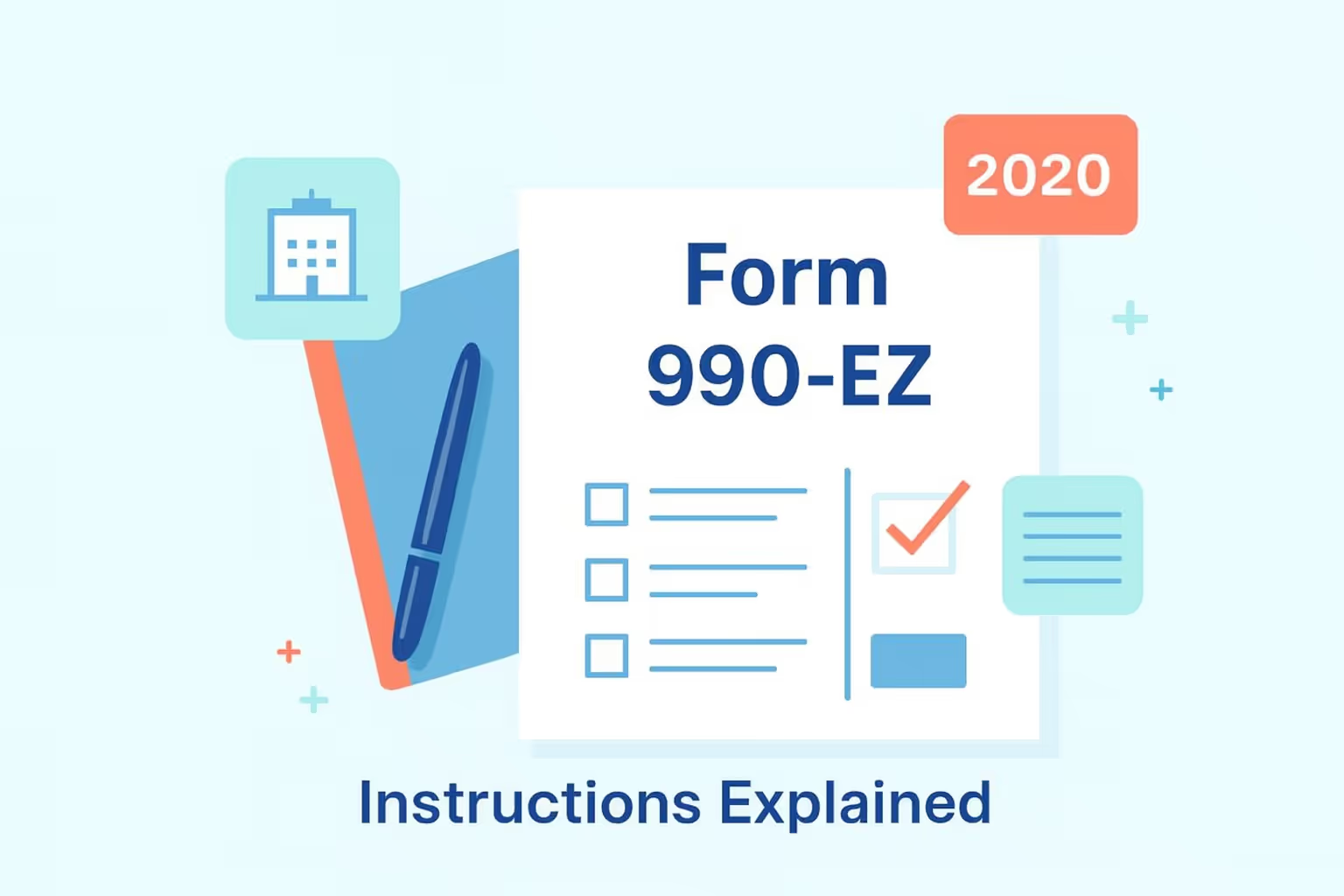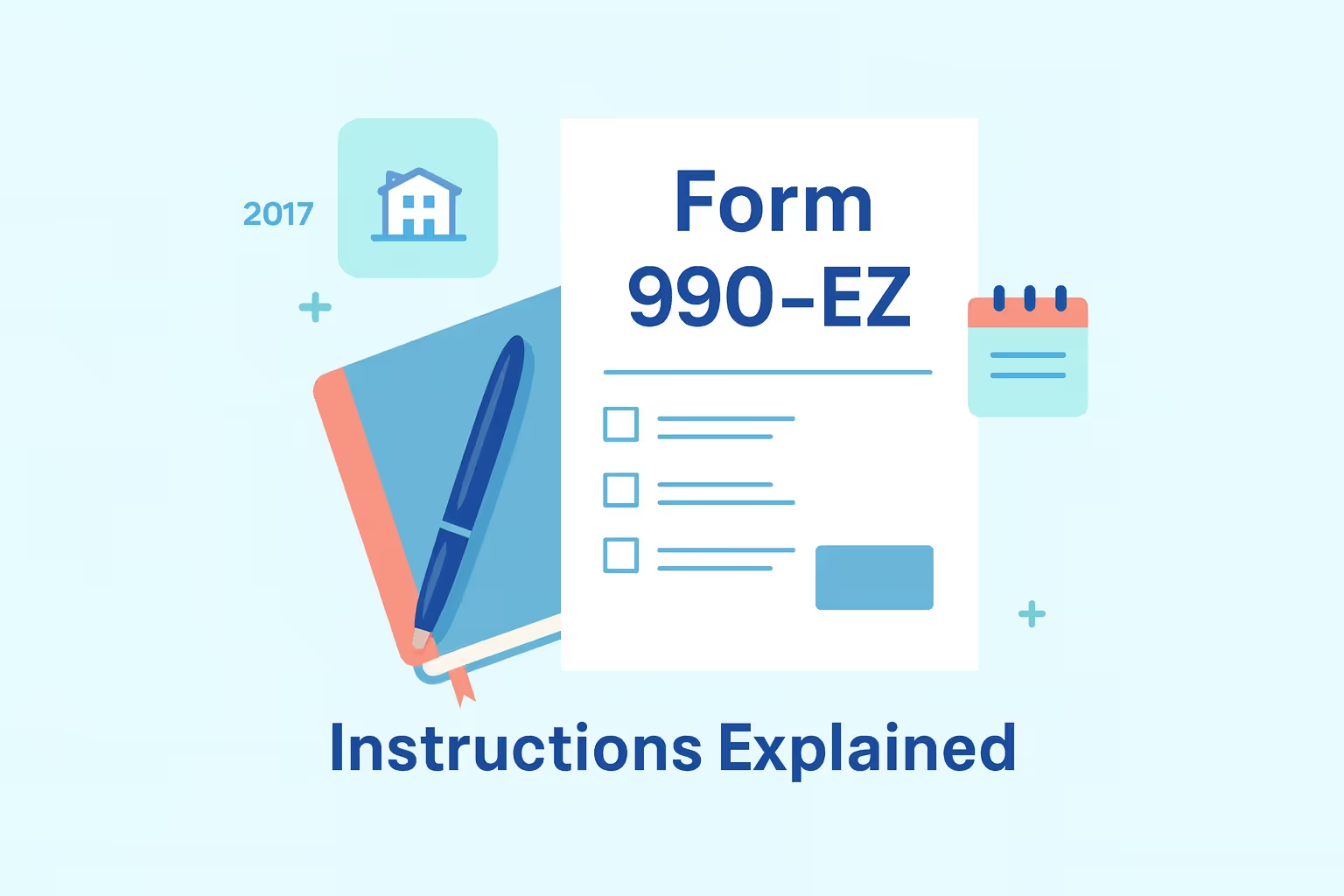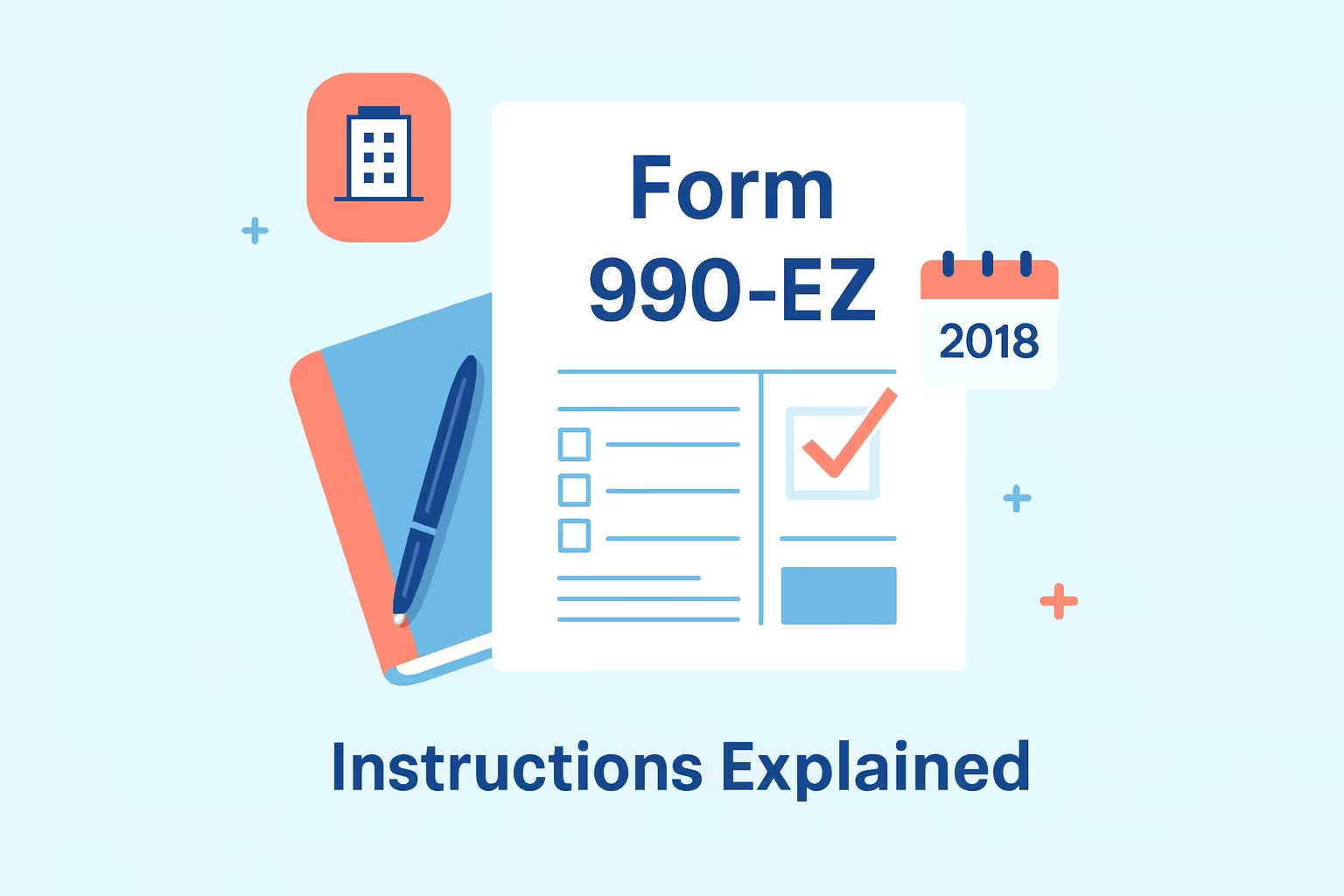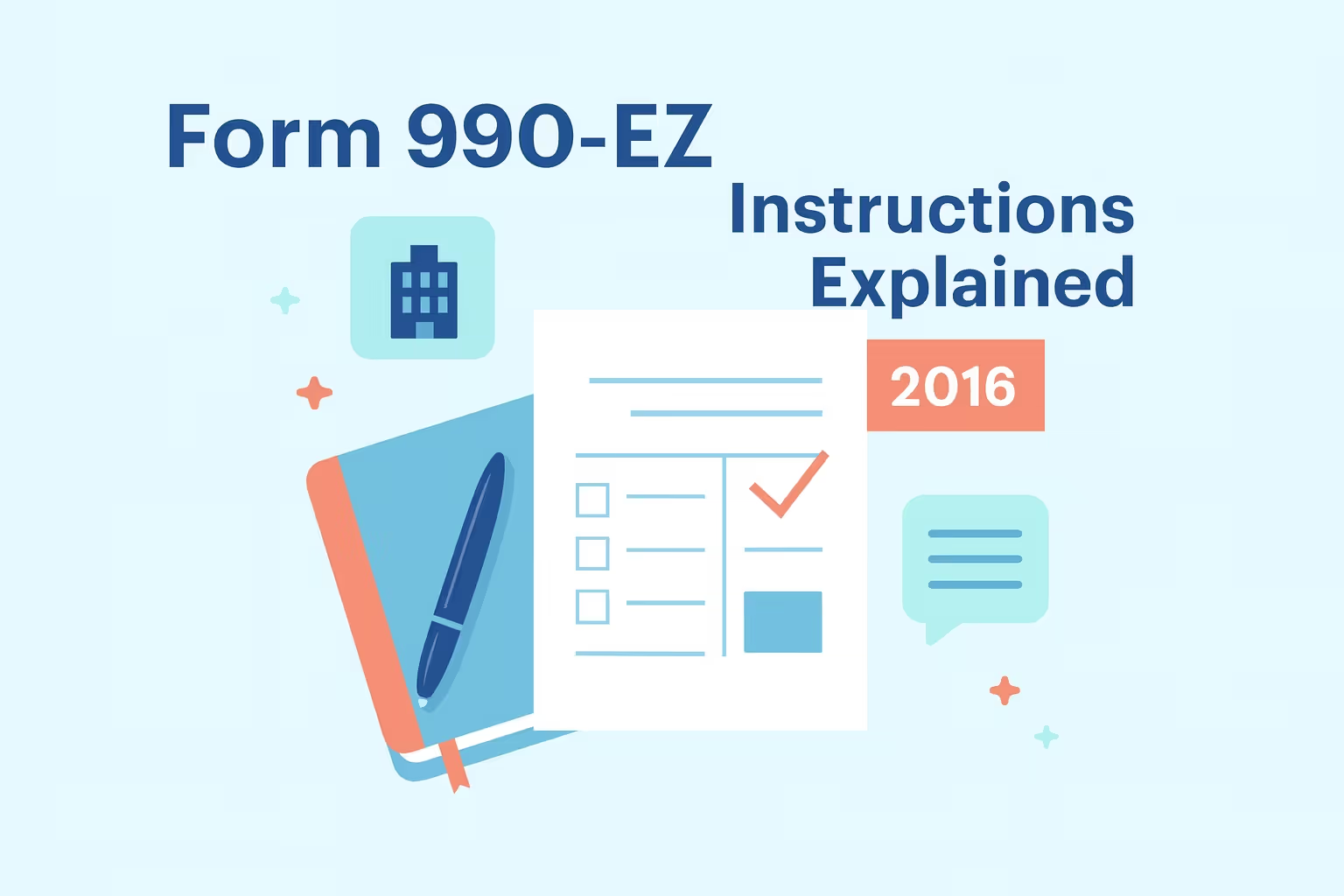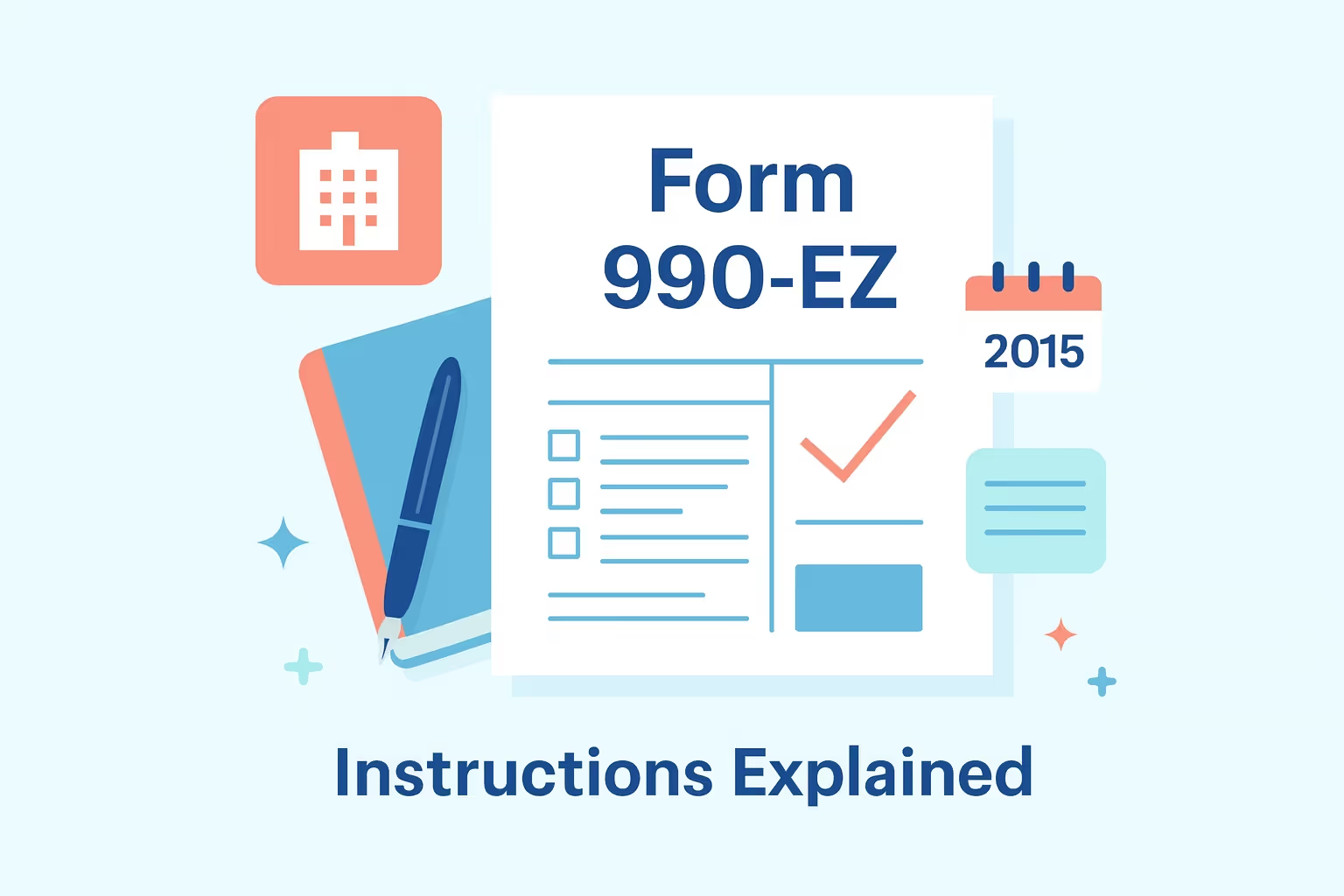
What IRS Form 990-EZ (2021) Is For
IRS Form 990-EZ (2021) is a simplified return used by smaller tax-exempt organizations to report their financial activities to the IRS. It is designed for organizations that do not exceed certain financial thresholds, such as having annual gross receipts under $200,000 and total assets under $500,000 at the end of the tax year.
This form is used by public charities, nonexempt charitable trusts, and specific political campaign organizations to maintain their tax-exempt status and report key financial data. By filing Form 990-EZ, these organizations comply with the Internal Revenue Code and ensure transparency with the United States Treasury.
Nonprofit and exempt organization filers that require related schedules, instructions, or prior-year materials may refer to the Nonprofit and Exempt Organization Forms hub for a centralized resource of comparable federal filings.
When You’d Use IRS Form 990-EZ (2021)
IRS Form 990-EZ is required for organizations to report their financial activities for a tax year. It is primarily used by smaller tax-exempt organizations, such as public charities, that meet specific criteria regarding their income and assets. Organizations with annual gross receipts under $200,000 and total assets under $500,000 at the end of the tax year are generally eligible to file this short form return.
An amended return must be filed if errors are found in the initial submission or if additional schedules, such as Schedule C for gaming activities, are required. Organizations may also use this form when filing late to maintain their tax-exempt status. Filing this form also ensures compliance with the Internal Revenue Code and prevents penalties related to failure to file.
Key Rules or Details for 2021
For the 2021 tax year, IRS Form 990-EZ must be filed electronically, as paper submissions will be considered unfiled. This change affects all tax-exempt organizations, including those filing for public charity status or reporting gaming activities. All tax-exempt organizations that meet the income thresholds are required to comply with the electronic filing mandate.
Eligibility for filing Form 990-EZ remains unchanged, requiring organizations to have annual gross receipts under $200,000 and total assets under $500,000. Filing on time is essential to maintaining the organization’s tax-exempt status and avoiding penalties for late submission. To ensure compliance, organizations must follow these steps:
- Ensure that their income tax records are up-to-date.
- Include all required supporting documents, such as Schedule B for contributions.
- File by the due date to avoid penalties for late filing.
Step-by-Step (High Level)
Filing IRS Form 990-EZ requires following specific steps to ensure timely and accurate submission. Here’s a high-level guide to help you through the process:
- Gather Documents: Collect all necessary supporting documents, such as income tax records and any IRS correspondence. These will help you accurately complete the form.
- Complete the Form: Fill out the 2021 version of Form 990-EZ, ensuring all required fields are filled. Include any applicable schedules, like Schedule G for public support or Schedule C for gaming activities.
- File Electronically: Submit your completed form through an IRS-approved e-file provider. Electronic filing is mandatory, as paper submissions will be treated as unfiled.
- Maintain Records: Keep a copy of the filed form and all supporting documents for at least three years. This is important for potential audits or future inquiries.
Common Mistakes and How to Avoid Them
Filing IRS Form 990-EZ requires careful attention. A common mistake is using the incorrect form. If your organization’s gross receipts exceed $200,000 or assets exceed $500,000, you must file Form 990 instead of Form 990-EZ.
Another mistake is omitting required schedules, such as Schedule O for explanations or Schedule B for contributors. Failing to include these schedules can lead to penalties and delays. Ensure that all supplemental information is provided to avoid an incomplete return.
Lastly, failing to sign the form or file it on time can result in rejection or penalties. Always double-check your form for missing signatures or deadlines before submitting it.
What Happens After You File
Once IRS Form 990-EZ is submitted, the IRS begins processing the return. Electronic submissions are usually processed within a few weeks, and you will receive an e-postcard confirming receipt. If the IRS identifies any issues or requires more information, it will send a letter outlining the necessary actions.
Organizations may also receive a penalty notice if they fail to meet filing requirements, such as missing deadlines or submitting incomplete returns. These penalties typically include daily fines and can be based on your organization’s gross receipts. If penalties are assessed, the organization may request abatement for reasonable cause, such as unavoidable delays.
After processing, the IRS will provide further instructions if any additional documentation or payments are required. Organizations should keep a copy of all filed documents and confirmations for future reference.
FAQs
How do I file an amended Form 990-EZ?
To file an amended Form 990-EZ, submit a new return with the necessary corrections. Check the "Amended Return" box and include explanations on Schedule O for any discrepancies or missing information. This ensures the organization’s tax-exempt status remains intact, and any errors in gross receipts or other figures are addressed.
Can I file Form 990-EZ late and avoid penalties?
Yes, Form 990-EZ can be filed late, but penalties will apply if it is not submitted by the due date. Penalties for late filing can reach $20 per business day, up to $10,500 or 5% of the organization's gross receipts, whichever is less. Always file earlier to avoid these penalties and ensure your organization’s tax period remains compliant.
Do I need to file Form 990-EZ if we have a significant disposition?
If your organization has a significant disposition of assets or engages in fundraising, you may need to file additional forms or schedules with your 990-EZ. Schedule G may be required for public support activities, while significant disposition details should be accurately reported. Consult the instructions for the specific requirements based on your situation.
How do I request an extension for filing Form 990-EZ?
To request an extension for filing Form 990-EZ, you must file Form 8868 with the IRS before the due date. The IRS will grant an extension for six months, which can help avoid late penalties. Be sure to send this form to the correct IRS address and include all required information to ensure approval.
What is the deadline for filing Form 990-EZ for the following year?
Form 990-EZ for the following year is typically due on the 15th day of the 5th month after the close of the organization’s tax period. If your organization is on a calendar year, the deadline will usually fall in May. If you are unsure of your specific due date, consult the instructions on the form or reach out to the IRS for guidance.
Organizations that need access to related federal filings for tax-exempt entities may refer to the Federal Fillable Tax Forms and Guides hub for a comprehensive collection of federal forms, schedules, and prior-year instructions.










